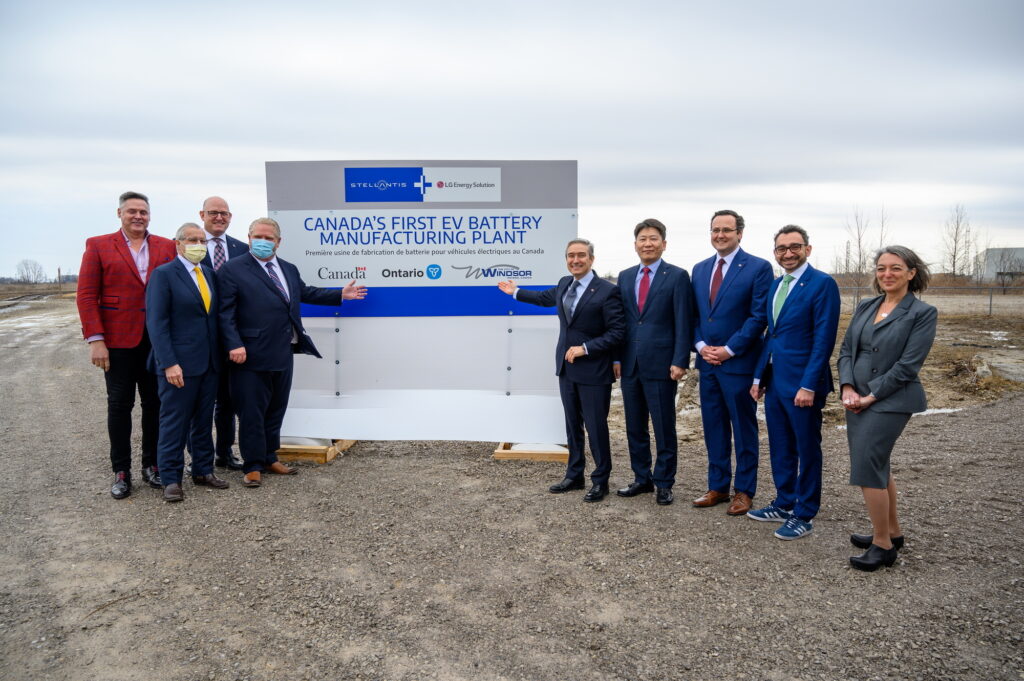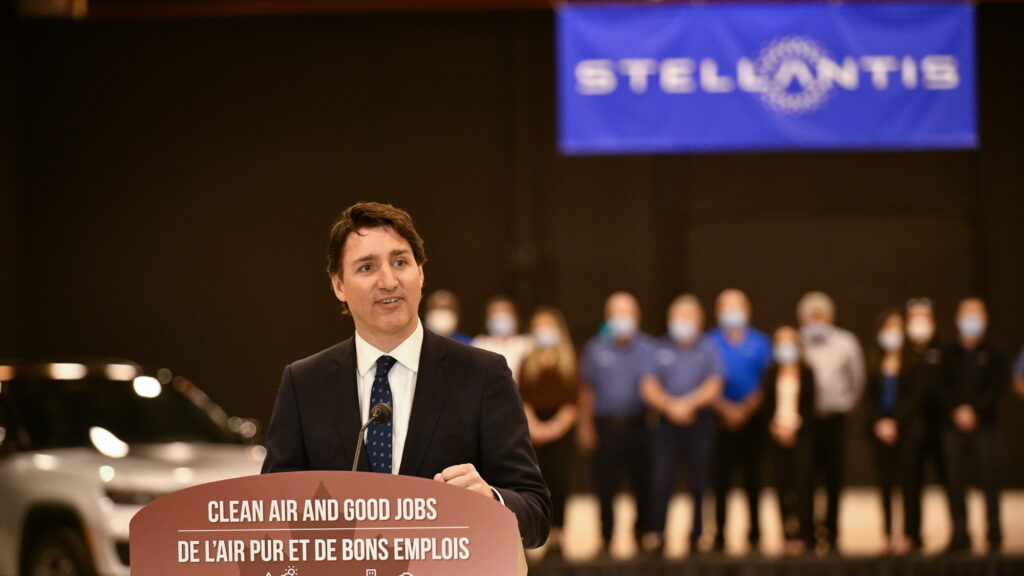Stellantis said Monday that it has stopped all construction on a plant for electric vehicle batteries in Canada. The company said it will begin implementing “contingency plans” with its partner, LG Energy, as they negotiate with nation’s governments.
“As of today, the Canadian government has not delivered on what was agreed to, therefore Stellantis and LG Energy Solution will immediately begin implementing their contingency plans,” Stellantis said in a statement to Bloomberg.
The company did not elaborate on what specifically was at issue, but the province of Ontario’s premier, Doug Ford, said that the move “really worries” him. He added that the federal government should step up in the way they did for Volkswagen. Meanwhile, a source from the federal government told Reuters that it was Ford’s provincial government that needed to offer more attractive terms to Stellantis.
Read: Volkswagen Will Build Its First Overseas Battery Factory In Canada

Ford’s comments relate to the $13 billion CAD ($9.65 billion USD) in subsidies and the $700 million ($519 million USD) in grants that the Canadian government gave VW to entice it to build a battery factory of its own in southern Ontario, about two hours from Detroit, Michigan.
The federal government said that, despite Stellantis’ talk of “contingency plans,” negotiations are ongoing.
“The auto industry is crucial to the Canadian economy and to the hundreds of thousands of Canadian workers in this sector. That’s why Minister Champagne has worked tirelessly to secure the future of Canada’s auto industry,” a spokesperson for the federal minister of Canadian industry said. “We continue to negotiate in good faith with our partners. Our top priority is and remains getting the best deal for Canadians.”
Stellantis announced last year that it would be building a battery plant in Windsor, Ontario, just across the border from Detroit. The plant was to be a joint venture with Korea’s LG Energy, and would cost more than $5 billion CAD ($3.71 billion USD at current exchange rates).
The plant is aiming for annual production of 45 gigawatt hours of batteries, and will be operated by 2,500 workers. Canada’s Unifor union said it is involved in the ongoing negotiations. Where Stellantis will go if it scraps its plant in Windsor is not clear at this moment.









